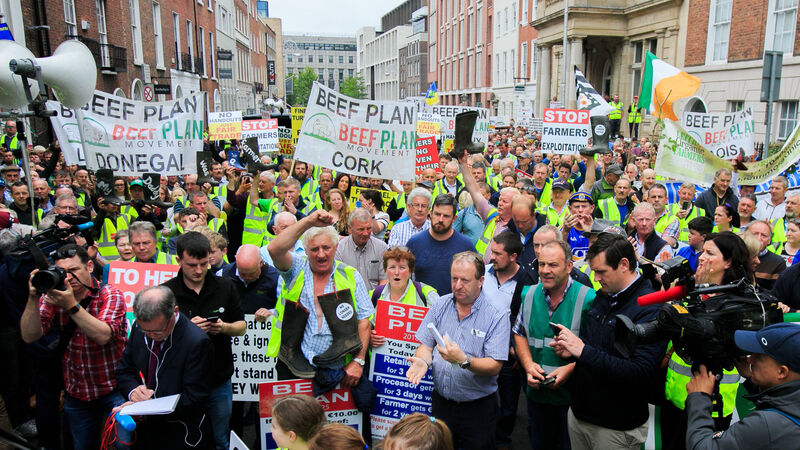‘Farmers cannot look at Brazilian beef on EU shelves when we are told beefmust be more sustainable’

Farmers protesting over the Mercosur Deal outside Leinster House, Dublin, in 2019. Picture: Gareth Chaney Collins
Try from €1.50 / week
SUBSCRIBEEU representatives have approached Brazil’s government, seeking to rekindle negotiations on the stalled 2019 EU-Mercosur trade agreement.
The renewed contact comes amid rapid changes in global supply chains due to the pandemic and the Ukraine war, which have increased Brazil’s influence as an agricultural producer.
Already a subscriber? Sign in
You have reached your article limit.
Annual €130 €80
Best value
Monthly €12€6 / month
Introductory offers for new customers. Annual billed once for first year. Renews at €130. Monthly initial discount (first 3 months) billed monthly, then €12 a month. Ts&Cs apply.
Newsletter
Keep up-to-date with all the latest developments in Farming with our weekly newsletter.
Newsletter
Keep up-to-date with all the latest developments in Farming with our weekly newsletter.
Newsletter
Sign up to the best reads of the week from irishexaminer.com selected just for you.
Newsletter
Keep up with stories of the day with our lunchtime news wrap and important breaking news alerts.
Saturday, February 7, 2026 - 3:00 PM
Saturday, February 7, 2026 - 3:00 PM
Saturday, February 7, 2026 - 7:00 AM
© Examiner Echo Group Limited